On Trump’s trade tariffs, why US manufacturing has lost and how the world should react.
On Trump’s trade tariffs, why US manufacturing has lost and how the world should react.
By Yunus Soner, Antalya / Türkiye
US President Donald Trump’s trade policies were one of the main topics at the 4th Antalya Diplomacy Forum, convened by the Turkish Foreign Ministry on April 11-13.
Here, we interviewed Jeffrey Sachs, professor at the U.S. Columbia university, a known economist and President of the UN Sustainable Development Solutions Network.
How do you evaluate the tariffs Trump has imposed, though they have partly been taken back?
I think the particular tariff rates that Trump announced last week that led to that financial bloodbath are not going to come back. So, I don’t think we’re going to hear again about those numbers after 90 days. 90 days in U.S. time now is infinity. It’s eternity. We’ll never hear those numbers again. Where did those numbers come from? Something, again, so stupid you can’t believe that any country, any country would do this, but the idea is the following.
If you want to know what your trade balance is, you earn some income, so you sell some services to somebody and you buy things. And if you spend what you earn, you’re in trade balance. Technically, you’re in current account balance. Now, most of us, I work for one employer, my university, so I run a big trade surplus with my university, and then I run a pretty big trade deficit with the grocery store that we buy our groceries from, and if I have to buy shoes, I run a trade deficit with the shoe store, and so forth. Trump’s idea, just to add to the craziness of it, is that you should run a trade balance with everybody. Not an overall trade balance, but a trade balance with everybody.
So, you should work a little bit for your shoe store, you should work a little bit for your grocery store, you should work a little bit for your grocery store, you should go around, anytime you want to shop, you trade something. I’ll write you an essay if you’ll sell me shoes and you’ll make your living somehow trying to balance your trade with all of your counterparts. Well, this is insane. This is why we have a market economy. You don’t have to have balance with every transaction that you do with somebody.
And, but what Trump said was, ‘oh Lesotho, they sell us more than we buy from them. So, they’re cheating us’. That’s literally what he said. Okay, is it completely delusional or rhetoric? It’s delusional, okay? Just so you know. It’s weird.
But anyway, now, then he calculated a formula. ‘Okay, Lesotho, we have to tax them by the amount to reduce the imports from them so that we have balance with Lesotho’. And then they made some absolutely stupid formula that you would not accept in a first year, third week class in university. It came out of the US Trade Representative’s office. They probably were told do it overnight – ‘the boss wants it’. And then they came up with a list of tariffs, country by country, based on the bilateral trade balance. You cannot make this stuff up. This is not a, it used to be not a Mickey Mouse country, my country.
But this is Mickey Mouse. This is not, and I’m sorry, I apologize to Mickey Mouse. He would not do this. Mickey Mouse is smarter than this. So, we are in a crazy land actually with this. Now it stopped for a moment.
“We’ll never hear those numbers again”
We’ll never hear those numbers again. I don’t know what we’ll hear in three months. God help us, really. Because it probably won’t have to do with trade, it’ll have to do with something else. But we can’t normalize this as what’s the rationale, how to negotiate, what to do. Of course, 60 countries immediately said, we’ll rebalance with you.
And the President of the United States literally used the language I’m about to use, I’m quoting him because otherwise I would never say this. He said, 60 countries are coming to kiss my ass. He said that in a public speech. The President of the United States!
So, this is, I’m sorry, I apologize, but it’s presidential language.
The United States as “a rogue state”
I’m only speaking at high political terms. So, we cannot normalize this. We have to say no. We didn’t spend a hundred years on 200 years, 207 years since David Ricardo put forward the idea of comparative advantage, okay? And we have been building the trade system since the ruins of World War II for 80 years. And we have been building the World Trade Organization, which the U.S. led the creation of, I think it’s fair to say, for 31 years. This should not be normalized to try to figure out what is the theory of this. And it’s a more fundamental point, ladies and gentlemen. The United States is a rogue nation right now on many things, not just on trade, but on making Gaza into the U.S. Riviera, on whatever it wants to say, it’s a little bit of a rogue nation.
For the world to hold together, the rest of the world has to say, ‘we’re not going down crazy lane. We’re going to be responsible. We’re going to go to the UN. We’re going to go to the World Trade Organization. We’re not going to get into this downward spiral. Because if we normalize craziness, there is no way out’.
I’m living in that crazy world, the Secretary of Treasury then, with all deference to a person who has a very hard job, he says this was planned all along, when Trump dropped this. Can you imagine? He couldn’t say anything else. To hear this from your Treasury Secretary is not also reassuring because all you hear is a crazy land rather than what we need to hear, which is rationality.
You state that this tariff policy is irrational. But is there any reason behind it?
So just to say, in American politics, the swing states in the presidential elections in the last three elections in particular have been the Midwestern states. So those are states like Michigan, Indiana, Illinois, Ohio, Pennsylvania, Wisconsin, Minnesota.
These are states that can go either way. And those states did suffer a decline of employment in manufacturing. Not only or even mainly because of trade, but also heavily because of automation over the last 40 years. I come from Detroit, which is a motor city, used to be. And I used to go when young on school field trips to see the assembly lines and there were actually workers on the assembly line.
Why manufacturing declined in swing states, and what should have been done
But now if you go to an automotive plant, it’s all robots, very, very few people inside. That’s not because the jobs went overseas. In that case, that’s because the assembly line itself became an automated phenomenon. So, Trump is giving an answer to those swing states. ‘It’s China’s fault. It’s Mexico’s fault. It’s Lesotho’s fault’.
Trade benefits the economy, but it could hurt some sectors. And what you do is not stop the trade, but you make sure that you pull everyone along, maybe in a regional policy or maybe in job reskilling or maybe in some other kind of public investment or education policy. Here’s where the US really failed over the last 40 years. We let the inequalities widen and widen, partly because of automation, partly because jobs did go overseas, but for the right reason. They had comparative advantage in those jobs. Skilled people got better and better salaries.
A 10-year-gap in life expectancy
Lower skilled people had their living standards fall. The gap widened. By the way, not just the income gap, the life expectancy gap became 10 years or more. So many of our epidemics, so many of our social problems relate to this widening inequality.
The United States political system didn’t address it at all for 40 years. And that comes to what I mentioned, the corruption of the political system, when candidates of both political parties are paid by rich donors for their re-election campaigns, and both parties then become the agents of tax cuts and no really addressing the social conditions, you end up with a Donald Trump coming in and selling a pseudo explanation, it’s all China, and selling a pseudo remedy, a trade war.
“The U.S. and Europe have handed over the market for EV vehicles to China”
What the auto workers are going to learn right now is they’re going to lose jobs by even the tariffs that have been put in place because we need the intermediate parts brought in from elsewhere. Now they face higher costs, and the United States can’t compete at all with Chinese electric vehicles. The United States has basically handed China the electric vehicle market for the next 20 years. So did Europe, by the way. Europe delayed the transformation to electric vehicles, said we produce great internal combustion engines, we’re going to continue to do that.
China thinks ahead
The world actually needs electric vehicles because of the climate crisis. So, all of this is to say the real hard work is to think ahead. The country in my experience of working all over the world in the last 40 years, that thinks ahead the most is China. China’s success is not random. China’s success actually is a lot of forward-looking planning.
In 2014, China issued a document called Made in China 2025. And it wasn’t a protectionist policy. It said, ‘we need to invest in the technology so we could be at the forefront’. I think in eight of the 10 sectors that were identified there; China succeeded in reaching the forefront. In 2017, China made a plan for artificial intelligence. This is already eight years ago.
Deep Seek didn’t just come out of nowhere. It came out of a long-term strategy. So, this is hard work that actually pays off. This is what every government should do. This is what every country should do, is look ahead. Now, you mentioned a very interesting idea.
Returning to domestic US circumstances: How were the reactions to the tariffs and what do you expect to happen?
I think that people are kind of shocked. Of course, the stock market is plummeting. Just in the U.S. alone, the stock market went down $5 trillion in a day. And Trump, of course, himself, he said he wanted and then he did. I think the dust is not settled yet on all of this. But it’s a bad scene in the world.
And then in the way that it was presented and the politics, now people are also wondering. Right now, some people know, five minutes ahead of time, that they made millions of dollars. But somehow, they got inside the equations.
We don’t have one-person-rule in the United States, we have a constitutional system. The constitution defines the powers of the president. Section 8 of the Article 1 says that tariffs are the progitive powers of the Congress. If you look at Article 2 of the Constitution, the President doesn’t have any power at all about tariffs. What Trump did was to announce an emergency.
He just called it an emergency; he announced that emergency. So, he’s using the word emergency to take powers that he doesn’t have. And so, I think what he’s done is illegal. I think it’s unconstitutional. I think there will be more cases because companies that will say ‘we don’t want to pay taxes that one person decided on’. I think the courts will go straight down line.







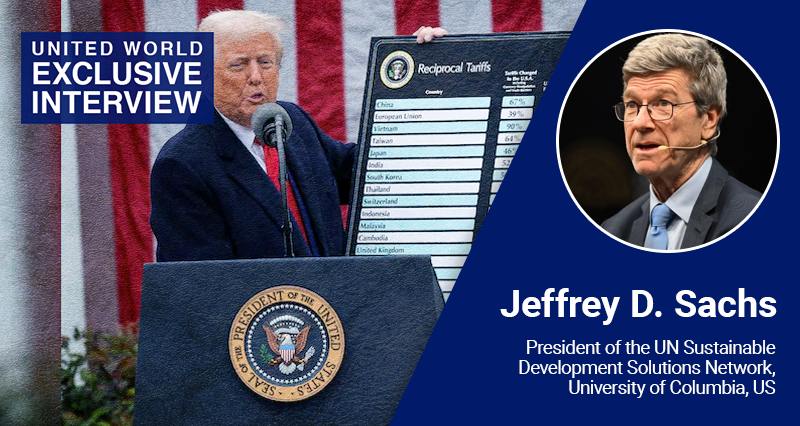
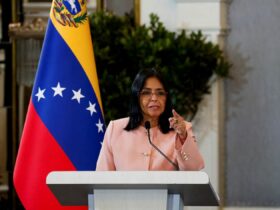


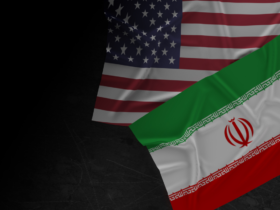
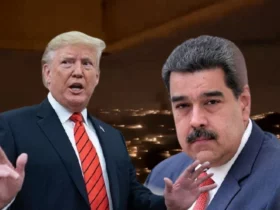

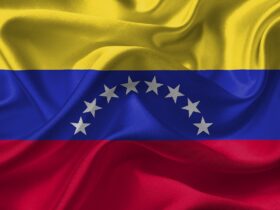

Leave a Reply